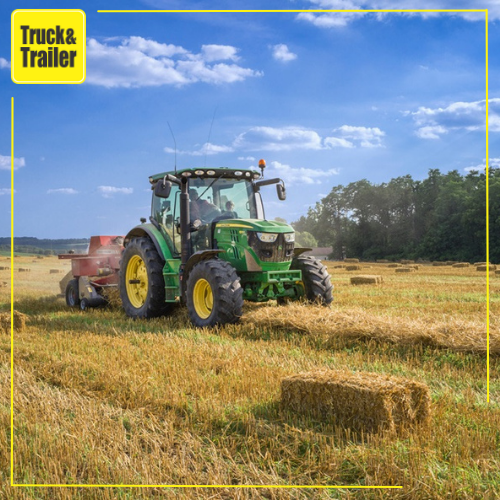
The Role of Tractors in Rural Development in South Africa
Date: 10/10/2023
Are you wondering what could be the role of tractors in rural development? In the vast expanse of rural landscapes, tractors emerge as the unsung heroes, playing a pivotal role in driving agricultural progress and fostering rural development. This article delves into the multifaceted contributions of equipment, examining their impact on agricultural productivity, economic prosperity, accessibility, and the evolving landscape of tractor technology in the context of South Africa.
Tractors, the workhorses of modern agriculture, have transformed the rural farming landscape, propelling communities towards progress. Their influence extends beyond the fields, impacting the lives of farmers and the economic well-being of entire regions. By expediting crucial farming processes such as plowing, planting, and harvesting, tractors enhance agricultural productivity and set the stage for sustainable rural development.

1. How do tractors expedite farming processes and improve crop yields?
Tractors are the backbone of modern agriculture, significantly expediting critical farming processes such as plowing, planting, and harvesting. The mechanisation of these tasks not only enhances efficiency but also leads to a substantial increase in crop yields. By providing farmers with the means to manage larger tracts of land more effectively, tractors contribute directly to the overall farm output, ensuring food security and economic stability for rural communities.
2. How does tractor adoption lead to more efficient and less labor-intensive farming practices?
The adoption of tractor technology brings about a paradigm shift towards mechanised farming practices, reducing the reliance on manual labor. This transition not only increases efficiency but also results in considerable time and cost savings for farmers. With tractors handling arduous tasks, farmers can allocate their time more strategically, leading to a more productive and sustainable agricultural system.
3. What is the economic impact of tractors on rural communities?
Tractors play a pivotal role in shaping the economic landscape of rural communities. Increased agricultural productivity, facilitated by tractor adoption, translates to higher income for farmers. Improved livelihoods and reduced poverty in rural areas are direct outcomes of this economic transformation. Tractors serve as powerful instruments in breaking the cycle of poverty, creating a ripple effect that uplifts entire communities.
4. How accessible is tractor technology in South Africa, and what initiatives aim to improve access for smallholder farmers?
Access to tractor technology in South Africa is a critical consideration, encompassing factors such as affordability, availability, and infrastructure. Initiatives and programs are underway to bridge the accessibility gap for smallholder farmers. These efforts focus on providing affordable financing options, establishing rental schemes, and enhancing infrastructure to ensure that the benefits of tractor technology are accessible to all, irrespective of the scale of farming operations.

5. Why are training programs crucial for effective tractor use, and how do they contribute to sustainable rural development?
While tractors are powerful tools, their effectiveness relies on the skills of the farmers operating them. Training programs play a pivotal role in empowering farmers with the necessary skills for tractor operation and maintenance. By investing in skill development, farmers not only optimise tractor utilisation but also contribute to sustainable rural development by fostering a knowledgeable and self-reliant farming community.
6. What challenges are faced in integrating tractors into rural farming systems, and what are the proposed solutions?
Despite the numerous benefits, challenges in integrating tractors into rural farming systems persist. Barriers related to access, maintenance, and environmental concerns need addressing. Initiatives involving government support, community-driven solutions, and environmentally sustainable practices can mitigate these challenges. A holistic approach that considers both technological and socio-economic factors is crucial for successful integration.
7. What are the emerging trends in tractor technology and their potential impact on the future of agriculture in South Africa?
The future of agriculture in South Africa is shaped by emerging trends in tractor technology. Innovations such as precision agriculture, autonomous tractors, and data-driven farming practices hold immense potential. These advancements not only enhance efficiency but also pave the way for more sustainable and environmentally conscious agricultural practices. By staying abreast of these trends, South Africa can position itself at the forefront of agricultural innovation and ensure continued rural development.
In conclusion, tractors stand as linchpins in the journey towards sustainable rural development in South Africa. From improving agricultural productivity and economic upliftment to addressing accessibility concerns and embracing emerging technologies, the role of tractors remains pivotal. By fostering a holistic approach that combines technological innovation with community empowerment, South Africa can pave the way for a prosperous and sustainable agricultural future.






